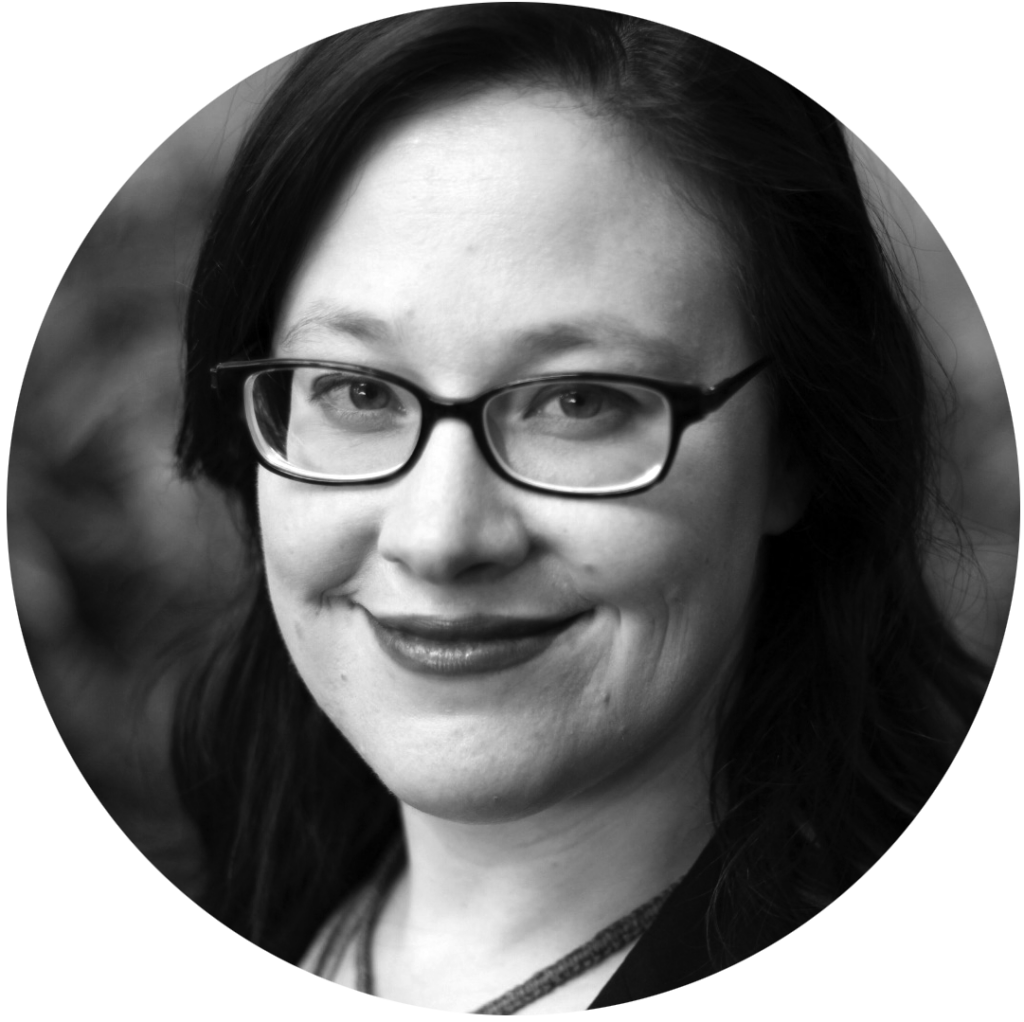The anthropological imagination can be exponentially expanded by anticipating the consequences of human action. Futures thinking—strategic research that helps us systematically explore what the future may hold—is increasingly being combined with anthropological techniques to create an emerging area of research called Ethnographic Futures, or ethnofutures. Ethnofutures helps us sense cultural and behavioral change in order to forecast long-term impacts and societal transformations.
In this webinar we have three objectives. First, we want to introduce EPIC practitioners to an ethnofutures approach, laying the foundation for how anticipatory anthropology and futures thinking can be used in ethnographic practice. Second, we will identify several techniques that can be used to think systematically about possible futures, using today’s evidence. Finally, we will present several concrete examples of how an ethnofutures approach can be useful in corporate contexts, demonstrating how futures thinking can benefit practitioners, particularly those who must think strategically about the directions of their companies. The instructors in this webinar will lay out principles and examples pertinent to their practices, and facilitate discussion among webinar participants.
References
Cefkin, Melissa & Erik Stayton. Speculating about Autonomous Futures: Is This Ethnographic? EPIC Perspectives, 11 September 2017.
Cuciurean-Zapan, Marta. Situated: Reconsidering Context in the Creation and Interpretation of Design Fictions. 2017 EPIC Proceedings: 112–126.
Dunagan, Jake. A Methodological Interlude: Alternative Futures and Deductive Forecasting. Institute for the Future Blog. Last modified February 25, 2010.
English-Lueck, J.A., Miriam Lueck Avery. Corporate Care Reimagined: Farms to Firms to Families. 2014 EPIC Proceedings: 36–49. 10.1111/1559-8918.01004
Frank, Priscilla. Your Brief and Far-Out Guide to Afrofuturism. Huffington Post, April 25, 2016.
Glabau, Danya. Cyborg Anthropology. EPIC Talks.
Inayatullah, Soheil. Causal Layered Analysis: Poststructuralism as Method. Futures 30, no. 8 (October): 815-829. 10.1016/S0016-3287(98)00086-X. Open access resource: Causal Layered Analysis: Poststructuralism as Method.
Institute for the Future. What could Health and Health Care in the US look like in 2020? Four Alternative Futures Scenarios.
Lindley, Joseph, Dhruv Sharma, Robert Potts. Anticipatory Ethnography: Design Fiction as an Input to Design Ethnography. 2014 EPIC Proceedings: 237–253. 10.1111/1559-8918.01030.
Neeley, J. Paul & Elliot Montgomery. Tutorial: Speculative Design—Futures Prototyping for Research and Strategy. Tutorial presented at EPIC2016, Minneapolis, MN.
Rohrbeck, René & Menes Etingue Kum. Corporate Foresight and Its Impact on Firm Performance. Technological Forecasting and Social Change 129 (April): 105–116. 10.1016/j.techfore.2017.12.013
Smith, Rachel Charlotte and Ton Otto.“Cultures of the Future: Emergence and Intervention in Design Anthropology.” In Design Anthropological Futures, London and New York, Bloomsbury, 2016.
Textor, Robert. Commentary: A Brief Explanation of Ethnographic Futures Research. Anthropology Newsletter 30, no. 8(1989): 1,24. doi.org/10.1111/an.1989.30.8.1.1 [paywall]
Presenters
 Miriam Lueck Avery is an anthropologist and foresight strategist. She sits in the Emerging Technologies R&D group at Mozilla, where she has been building a foresight capability sensing change, communicating vision, explore new opportunities to shape an internet that truly puts people first. She cut her teeth on futures at the Institute for the Future, where for the past decade she investigated how we may take care of ourselves and one another through health care, food, work, caregiving, and technology, as well as leading the Foresight Studio training initiative. She holds a degree in Anthropology from U.C. Berkeley.
Miriam Lueck Avery is an anthropologist and foresight strategist. She sits in the Emerging Technologies R&D group at Mozilla, where she has been building a foresight capability sensing change, communicating vision, explore new opportunities to shape an internet that truly puts people first. She cut her teeth on futures at the Institute for the Future, where for the past decade she investigated how we may take care of ourselves and one another through health care, food, work, caregiving, and technology, as well as leading the Foresight Studio training initiative. She holds a degree in Anthropology from U.C. Berkeley.
 Dr. Jan English‑Lueck is a Professor of Anthropology at San Jose State University, and a Distinguished Fellow at the Institute for the Future. English-Lueck has written ethnographies about the anthropology of work, science and technology among California’s alternative healers and China’s scientists. She is also the author of several Stanford University Press books on SiliconValley includingCultures@SiliconValley, winner of the American Anthropological Association’s 2006 Diana Forsythe Prize for the anthropology of science and technology, now in the second edition, as well as two other ethnographies of the region. She is currently President of the American Anthropological Association’s Society for the Anthropology of Work. She is one of the graduate faculty in Applied Anthropology and integrates ethnographic design futures into her students’ training.
Dr. Jan English‑Lueck is a Professor of Anthropology at San Jose State University, and a Distinguished Fellow at the Institute for the Future. English-Lueck has written ethnographies about the anthropology of work, science and technology among California’s alternative healers and China’s scientists. She is also the author of several Stanford University Press books on SiliconValley includingCultures@SiliconValley, winner of the American Anthropological Association’s 2006 Diana Forsythe Prize for the anthropology of science and technology, now in the second edition, as well as two other ethnographies of the region. She is currently President of the American Anthropological Association’s Society for the Anthropology of Work. She is one of the graduate faculty in Applied Anthropology and integrates ethnographic design futures into her students’ training.
 Lyn Jeffery is a cultural anthropologist who collects stories of change from around the world and tracks the new social practices that make you shake your head in wonder or concern about where we’re heading. Her core interest is in exploring how people make sense of the rapidly shifting world around them, whether it’s a “left-behind” child in a Sichuan village, an executive in a large multinational organization, or an amateur musician experimenting with new digital tools. She is passionate about understanding how people are using ubiquitous information and digital co-presence to express themselves in new ways and form new kinds of social relationships. An IFTF Distinguished Fellow, Lyn leads IFTF’s EDU program, developing and delivering futures thinking training to public and private sector practitioners around the world. She contributes to IFTF’s Future 50 annual research program. Fluent in Mandarin, she has several decades of experience doing research in China. She enjoys designing bespoke research projects, group processes, and foresight presentations for a wide range of audiences. Lyn holds a BA in Chinese Studies and a Ph.D. in anthropology from the University of California, Santa Cruz.
Lyn Jeffery is a cultural anthropologist who collects stories of change from around the world and tracks the new social practices that make you shake your head in wonder or concern about where we’re heading. Her core interest is in exploring how people make sense of the rapidly shifting world around them, whether it’s a “left-behind” child in a Sichuan village, an executive in a large multinational organization, or an amateur musician experimenting with new digital tools. She is passionate about understanding how people are using ubiquitous information and digital co-presence to express themselves in new ways and form new kinds of social relationships. An IFTF Distinguished Fellow, Lyn leads IFTF’s EDU program, developing and delivering futures thinking training to public and private sector practitioners around the world. She contributes to IFTF’s Future 50 annual research program. Fluent in Mandarin, she has several decades of experience doing research in China. She enjoys designing bespoke research projects, group processes, and foresight presentations for a wide range of audiences. Lyn holds a BA in Chinese Studies and a Ph.D. in anthropology from the University of California, Santa Cruz.
 Fernando Galdino is a design researcher who has worked with a wide variety of companies, helping them to envision future possibilities as well as create products and services that resonate with people. Currently he is working to build bridges between ethnographic research and futures studies. Fernando is an Italizian/Brazilian living in Germany with degrees in industrial design and design ethnography.
Fernando Galdino is a design researcher who has worked with a wide variety of companies, helping them to envision future possibilities as well as create products and services that resonate with people. Currently he is working to build bridges between ethnographic research and futures studies. Fernando is an Italizian/Brazilian living in Germany with degrees in industrial design and design ethnography.
